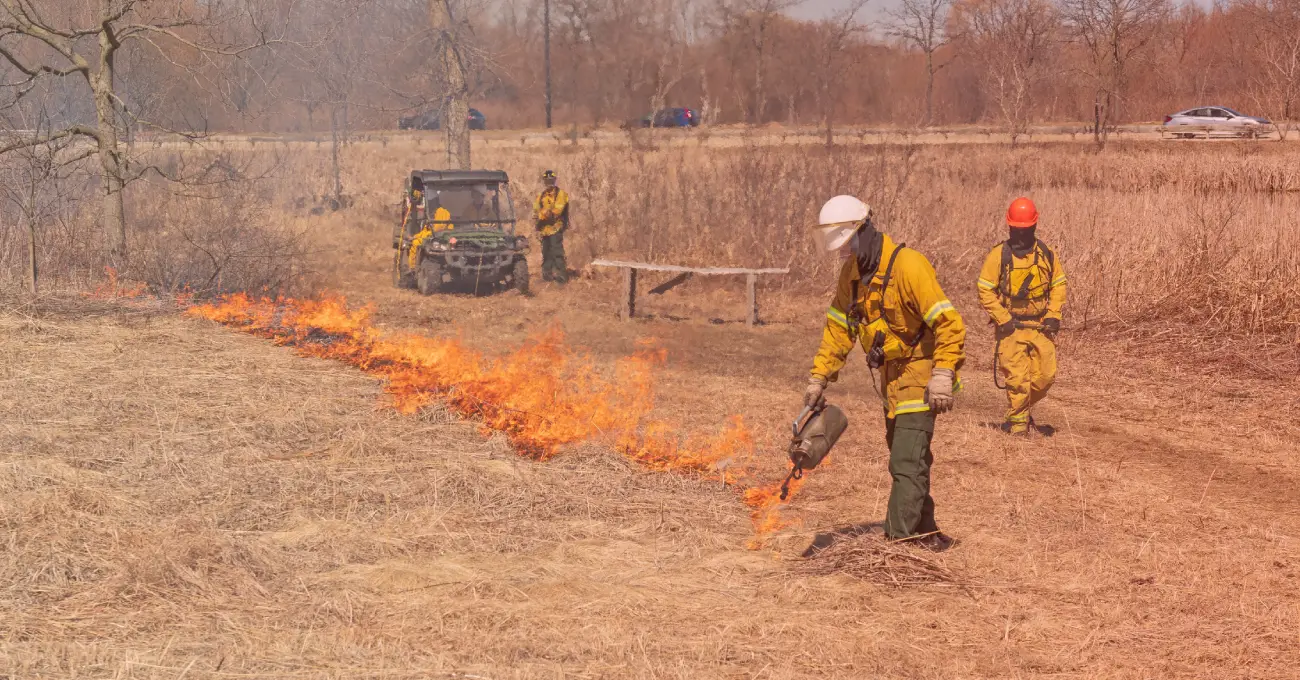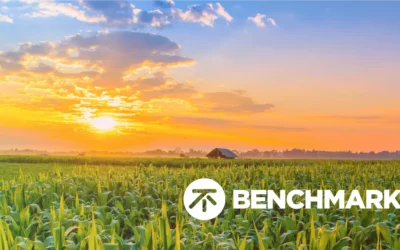Benefits of Controlled Burns for Agriculture
Controlled burns are a helpful practice thats use extends back thousands of years. Today, controlled burns have benefits that range from climate change impact mitigation to being a useful tool for agriculture. States like California are reconsidering their approach to controlled burns, opening the door for more flexibility for farmers, farm managers, and ranchers.
Benchmark Labs can provide information to help ensure they are conducted safely and strategically throughout the entire process – from permitting to execution. Understanding the process and maximizing the benefits of controlled burns while reducing the risk is critical to their success.
Benefits of controlled burns
Controlled burns, or prescribed burns, are intentional and managed fires used to achieve the desired outcome. Native Americans used fire for a multitude of reasons, including stewardship for healthy land and ecosystems.
- For agriculture, good results from a controlled burn can include removing leftover residues from crops, disposing of trees and pruning from orchards or vineyards, removing weeds, and as a form of disease and pest control.
- For livestock, controlled burns can manage parasites like ticks, and improve forage quality.
- Land managed with controlled burns shows resilience to wildfire, which is an increasingly important benefit as wildfires increase in frequency and magnitude as a result of climate change.
- Controlled burns can reduce the biomass of invasive species, and improve biodiversity in certain regions.
- Some ecosystems even rely on fire in order to stay healthy, and fire promotes the growth of certain plant species and provides forage for native wildlife.
- Ashes from burnt vegetation can boost the nutrients in soil, promoting new growth.
Approaching controlled burns
Understanding the components of permitting and execution for a controlled burn is critical to its success. When using fire for agricultural and livestock benefit, there is a checklist of considerations and conditions that must be met in order to execute a controlled burn safely. A prescription is required for each controlled burn, with considerations such as objectives, size, fuels, and environmental conditions. In order to meet the criteria, it’s important to have an in-depth understanding of each component. Controlled burns for agriculture are closely monitored and decisions to move forward with one depends on meteorological conditions and air quality.
—
Benchmark Labs cuts down on the guesswork, providing precise asset-specific weather forecasting, providing farmers, ranchers and farm managers with the best information available for permitting and controlled burns.
If you would like to learn more about Benchmark Labs from our team and sign up for a trial, go to our sign-up page.
Recent Posts
Revolutionizing Offshore Wind Farm Installation and O&M with Benchmark Labs
Offshore wind farms demand precise weather information to perform installation, and operations and maintenance activities, as they are vulnerable to atmospheric and ocean conditions. Therefore, accurate weather forecasts are crucial for safe, complex operations. Why...
Benchmark Labs and Seeed Studio’s Collaboration: A New Era of Offshore Vessel Safety
At Benchmark Labs, we're dedicated to pushing the boundaries of weather forecasting through the power of AI and machine learning. Our mission is to provide hyperlocal, point-specific forecasts that empower industries to make informed decisions and operate safely, no...
Benchmark Labs Launches In-Situ Evapotranspiration Forecasts
Benchmark Labs the leading provider of AI & IoT-driven weather forecasting solutions for the agriculture, energy, and insurance sectors is pleased to announce the global launch of their in-situ evapotranspiration forecasting technology. We previously talked about...




